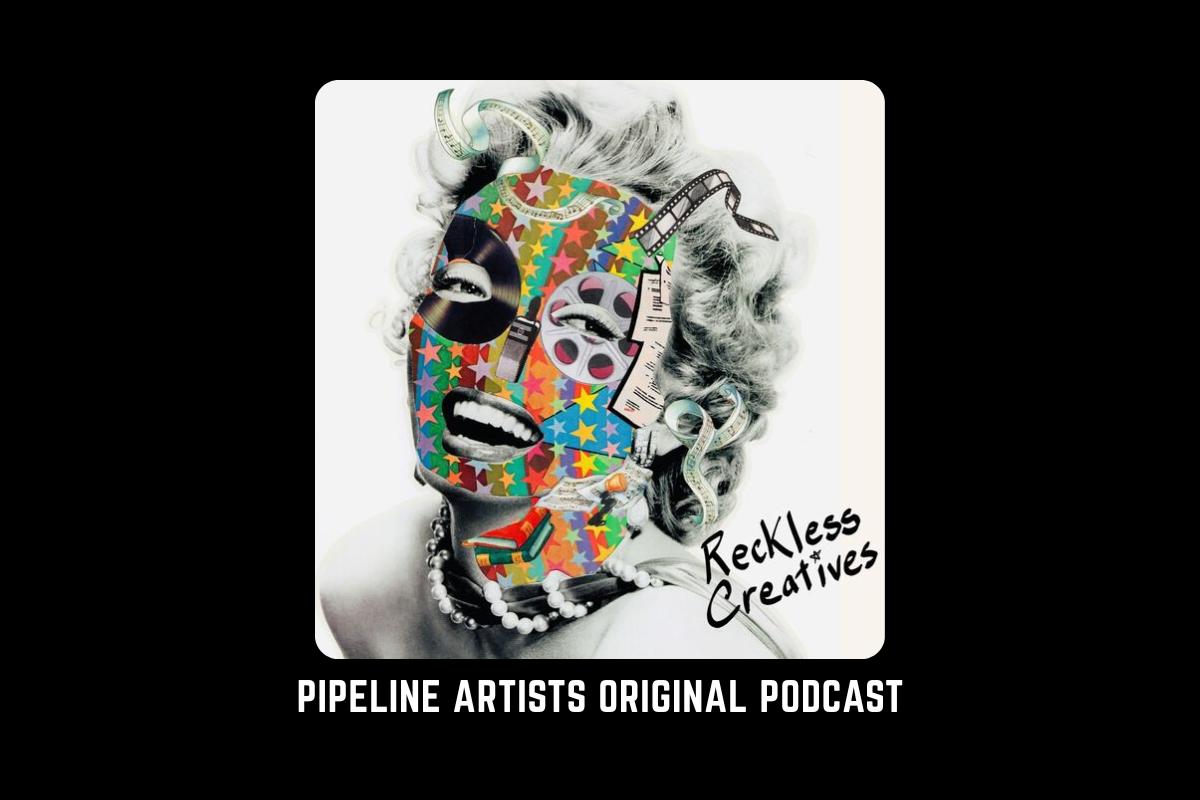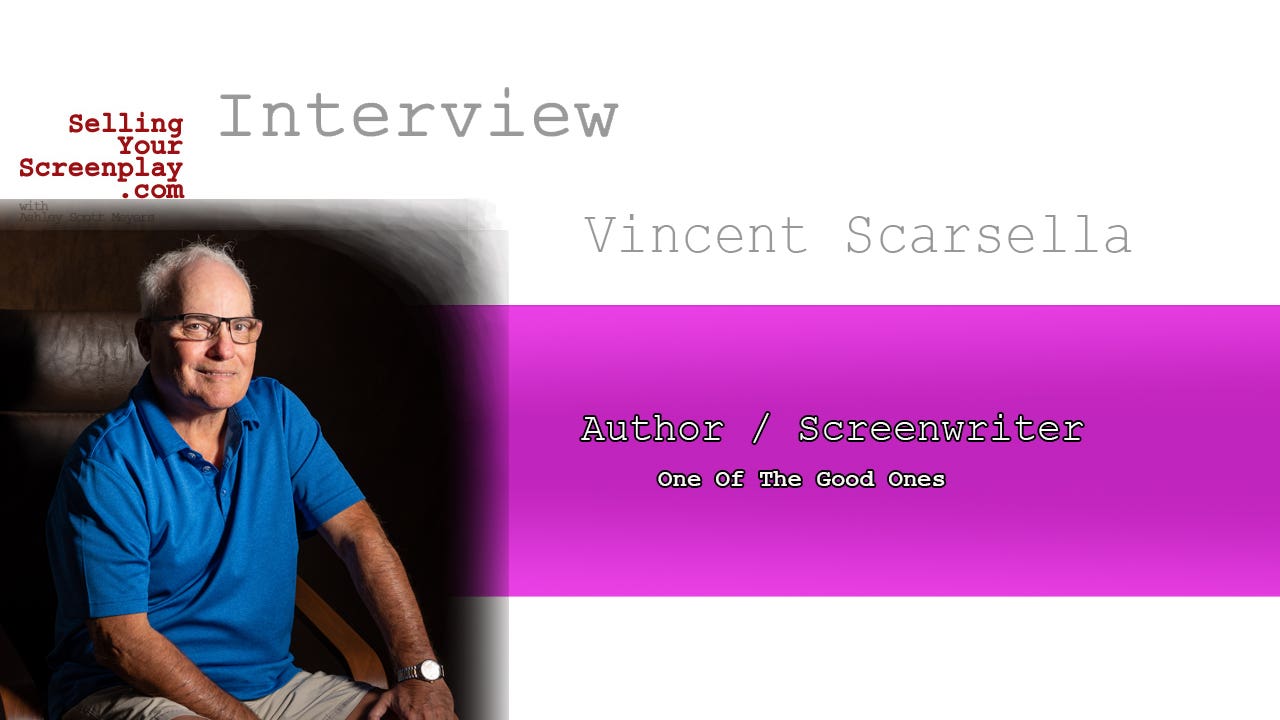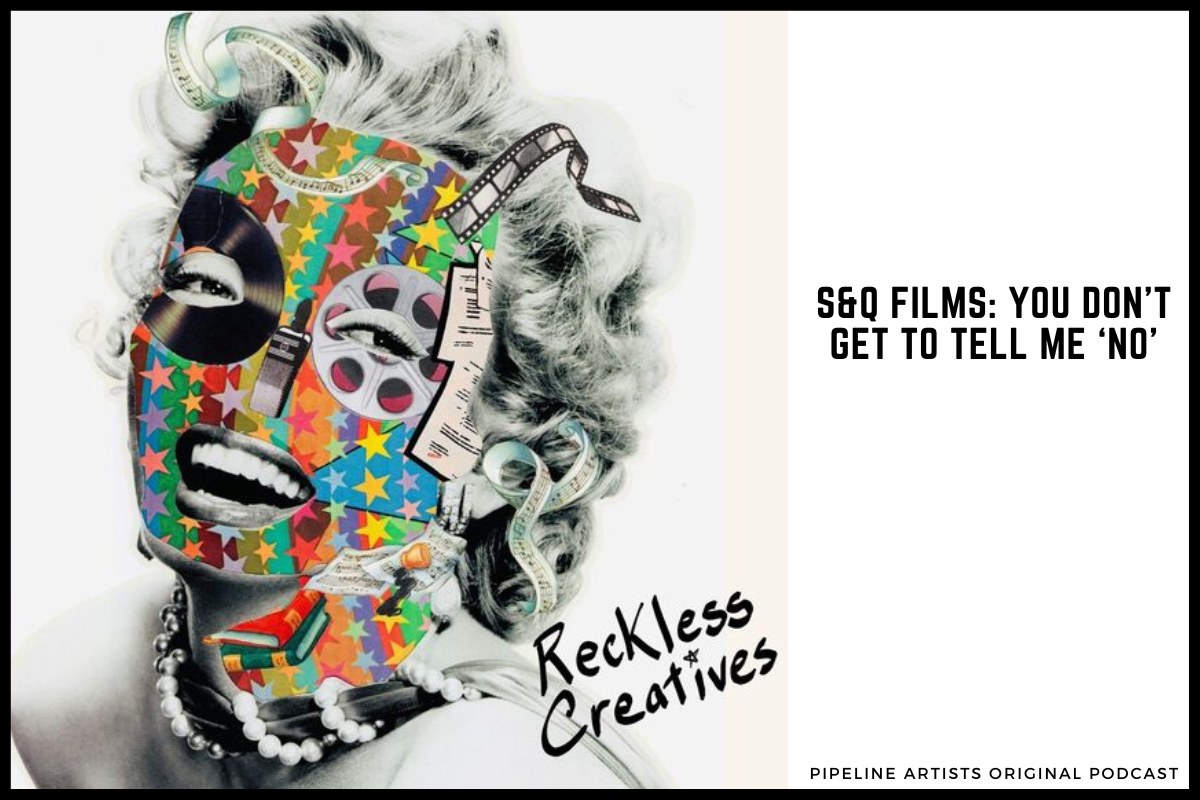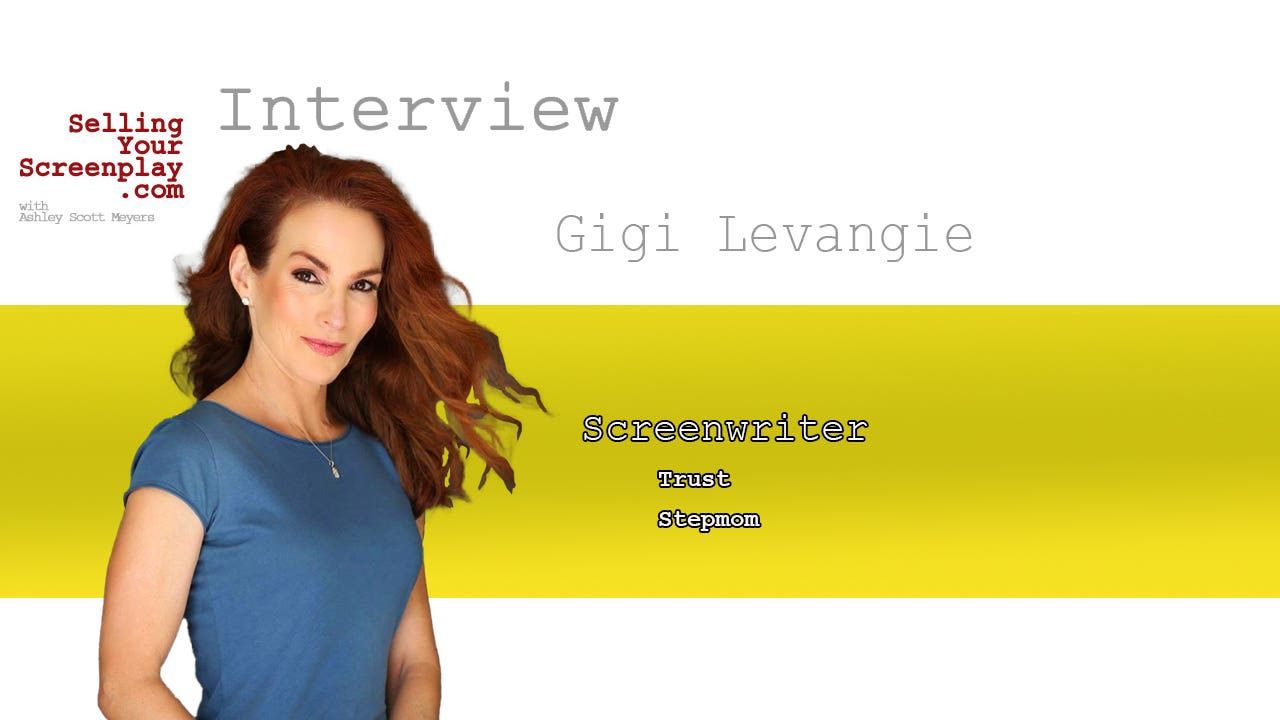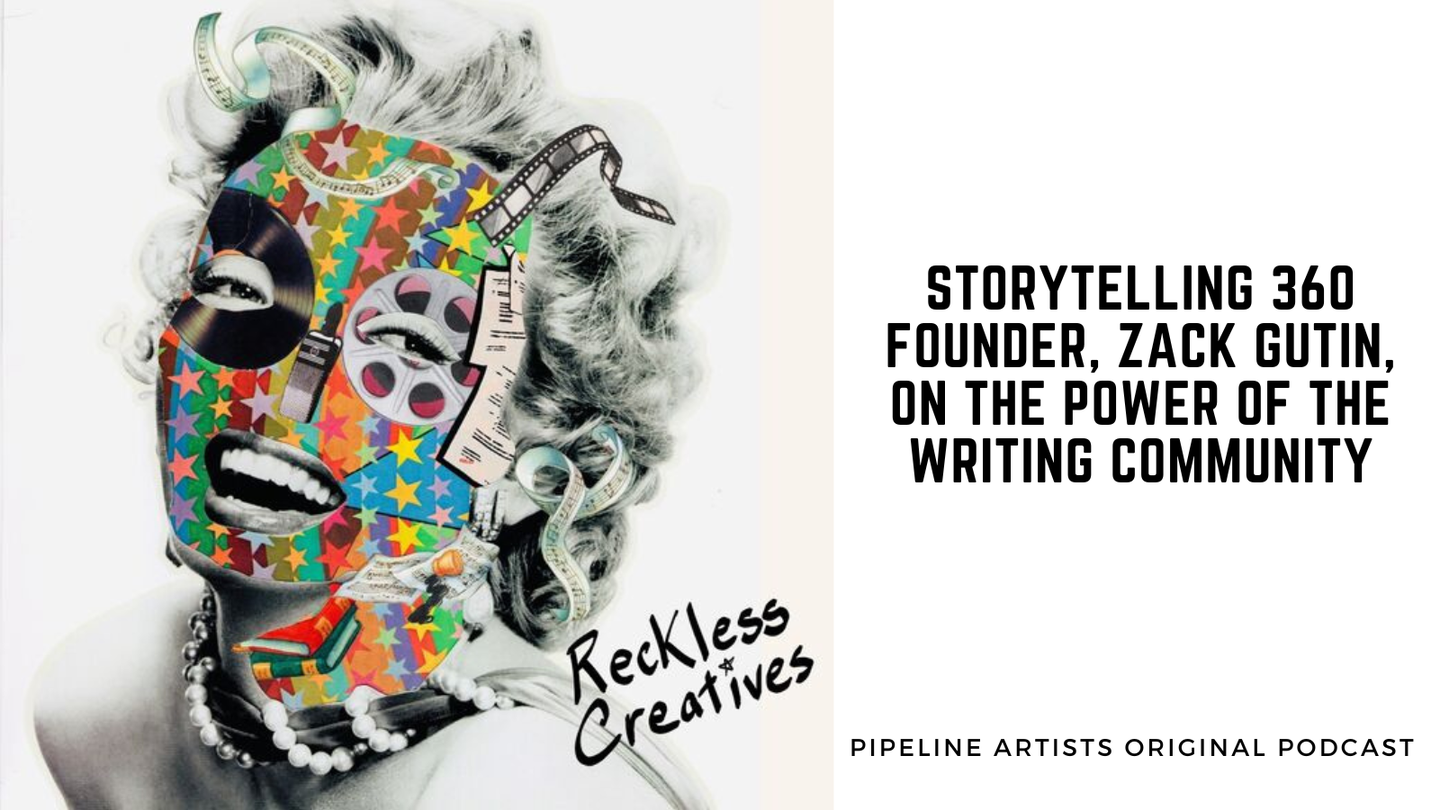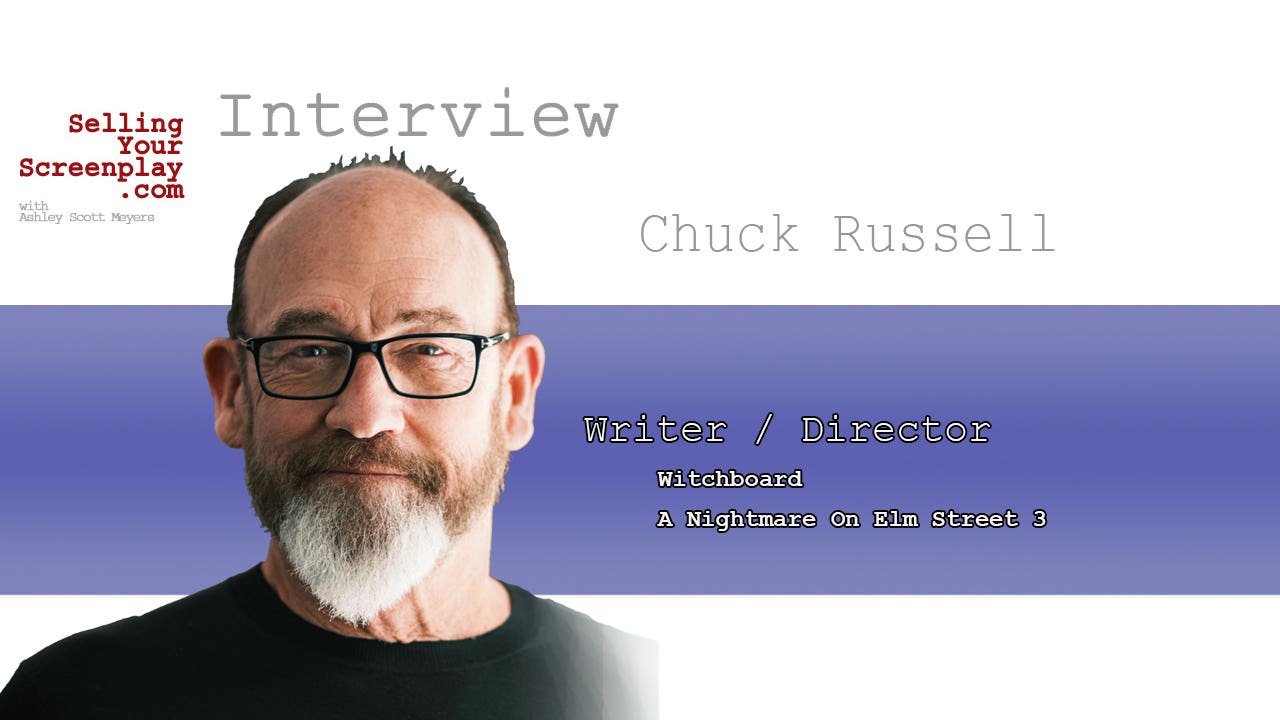WRITERS ON THE WEB: Interview with Creators of Web Series “The Right Swipe”
Rebecca Norris interviews the creators of the web series “The Right Swipe” (Official Selection – Austin Film Festival, Stareable Fest, NYC Webfest) about modern dating, their production journey, their path to distribution, and writing for people of marginalized identity.
Let's face it: when it comes to dating apps, some people's profiles need a little help! (Not everyone is a writer, after all.) Series creators Kyra Jones and Juli Del Prete saw an opportunity for a comedy series in the awkward and hilarious world of online dating in their hometown of Chicago.
In The Right Swipe, best friends India (Jones) and Margo (Del Prete) start a business fixing some men’s cringe-worthy dating app profiles. While they're busy helping others, they have no idea how much they’ll screw up their own love lives in the process. The series explores not only the humor in online dating, but also the challenges of dating at various intersections of marginalized identity.
The Right Swipe was an Official Selection of Austin Film Festival, Stareable Fest, NYC Webfest, Urbanworld Film Festival, and Portland Comedy Festival, where it won for Best Web Series episode. The series is distributed on Open Television.
I had the opportunity to talk with Kyra and Juli about their writing and production process, as well as the perils of online dating profiles.
Rebecca: As you describe it on your website, The Right Swipe is a web series about “dating at the various intersections of marginalized identity.” What does a marginalized identity mean to you, and what was your inspiration for creating the series?
Kyra: To me, a marginalized identity is something about a person that isn’t a societal norm—something oppresses them. It is usually something that they were either born with or that is outside of their control that makes it more difficult to navigate the world safely and comfortably. Being a person of color, a woman or gender minority, being queer, being working class or lower SES [socio-economic status], having a disability, being a religious minority, etc.
Honestly, our inspiration for the show came from our personal experiences swiping on dating apps and seeing how God awful most men’s profiles are—terrible selfie angles, non-existent bios, too many group photos—so many bad choices. We made a joke about how Juli (who is a professional photographer IRL) should charge to take decent photos...and how I could have them pay me to write a good bio. Then we thought, “Wait, what if we made that a real business?” Then we quickly decided that was too much work…so we decided to make a web series about it instead.
I know a lot of these men aren’t giving themselves a fair shot at finding real connections because they don’t know how to represent themselves…A lot of India’s storyline comes from my personal experiences and all the bullshit that comes along with being a black woman on dating apps (and just generally existing in the world). I have a lot of really ridiculous stories that my friends always told me I should write a memoir about, but a web series felt more fun and less pretentious.
Juli: A marginalized identity is any identity that is underrepresented or oppressed by society. In short, anyone who isn’t a cisgender, [identifying one’s personal identity and gender with one’s birth sex], heterosexual, able-boded white male is in some way marginalized. (That’s not comprehensive, either; it doesn’t cover the ways that issues such as fatphobia and stigma around mental illness can further marginalize folks.) Kyra and I focused particularly on characters who have intersecting marginalized identities—ie. black women, queer non-binary folks, etc.—and how those identities combine to create specific challenges in the already thorny world of modern intimacy.
Kyra covered the origin story of the series, so I’ll just add this: we both love romantic comedies, and it wasn’t like we sat down with a representation checklist when we wrote the show. For decades, rom-coms have been led by cishet [cisgender, heterosexual] white people, and that’s not our world. We populated our story with characters who look and think and feel like ourselves and our community, and then we were like, okay, who else’s story isn’t being told? How do we bring those people in?
As a white woman with a great deal of privilege, it was also an opportunity for me to lead by listening and create as much space for people as possible. I think if you’re an artist with any kind of privilege that’s a non-negotiable responsibility.
Rebecca: Please describe your writing process, especially since you’re a writing team.
Kyra: The night we came up with the series, we actually ended up outlining the whole first season that same evening. Then we would schedule writing dates and sit in coffee shops on a shared Google doc, talking through the story and dialogue and all that fun stuff. We let each other take the reigns on our character’s respective storylines and give input as needed, then for the scenes where India and Margo are with the clients, we collaborated more closely.
The whole 5-episode season has already been written and two episodes have been produced. So we’re ready to finish once we get the funding we need!
Juli: We outlined the whole first season the night we came up with the idea and wrote all the scripts in the next three months. We sat across from each other with a Google Doc open so we could both write at the same time. There were times when I’d be typing and I’d be like, “Okay, some version of that line but funnier,” and she’d go back and replace what I’d written with a better joke. Our process was incredibly fluid. I have a huge amount of trust in Kyra as a collaborator and enormous confidence in her as a writer. Our skills as writers really complement each other. She makes me better.
Rebecca: How did your pilot production go—were there any hiccups along the way? What lessons did you learn from your shoot? Anything you would definitely do again, or do differently in the future?
Kyra: I mean, money is always the biggest hiccup for any indie production. However, we had some really wild additional hiccups for our production.
First of all, the character Elijah is cursed. We had to fire the first two actors we cast for that role before we ended up with Patrick. Some people stole our generator in broad daylight and we had to pay out of pocket for it because it didn’t hit our insurance deductible. Then when we shot our big club scene, the location ended up having a heinous cockroach infestation and we had to stop filming early.
Despite all the hiccups, production was a blast and it was an unreal experience being on a set full of women, people of color, and LGBTQ folks. I would definitely work with every single person on our cast and crew again. I hope that all the sets for my film future projects look like The Right Swipe in terms of the diversity of people working in front of and behind the camera.
Juli: Honestly? Indie film is like 60% hiccups and 40% success, and if you’re going to do this, you have to have a sense of humor about that. We got robbed. We had to shut down production one day because our location had a cockroach infestation. Shit happens. But we had an amazing cast and crew who really believed in the project, and that made even the challenges fun. I think that’s probably the lesson – work with people who want to be on your set.
Rebecca: You’re distributed on Open Television. Please tell us all about this platform, and your process for being selected for it.
Kyra: OTV is a platform created by Dr. Aymar Jean Christian for Chicago artists of intersectional identities to distribute their independently produced media content. I believe is started as a research project as part of his work at Northwestern University, but the space and content it created was so needed in the world that the platform grew and is now a non-profit.
We already knew that The Right Swipe was headed to OTV when we created it, mostly because of it fits perfectly with OTV’s mission but additionally because I already had a relationship with Aymar and OTV. I was a principle cast member in another OTV series called Seeds, which is how I became part of the OTV family. Aymar knew I was interested in creating my own series and let me know he was excited to see whatever I came up with, so once Juli and I had a script to pitch he was fully on board and supportive.
Juli: I don’t have a lot to add that Kyra didn’t cover! OTV is a platform for intersectional indie episodic content. It’s the future of TV. If you have money, give it to OTV!
Rebecca: What is your plan for shooting the series? What are your goals for the project as a whole?
Kyra: Our hope is that we can find either a grant or a donor to give us enough funding to finish the 5-episode season. I think our biggest goal is just to get as many eyes on the series as possible. It would be great to get picked up by a network or streaming platform like Freeform, Hulu, or Netflix. On a smaller scale, I know both Juli and I would love to write for TV and film professionally, so in a way The Right Swipe is a writing sample for us.
Juli: We’ve actually finished two episodes and we’ve shot about half of the footage we need for the back three episodes of the season. If anyone wants to write us a check to finish the series, we’re game! Of course the dream is always to be distributed on a wider platform or picked up to series, but I do think there’s a particular joy in making this story with our community, for our community.
We hand-picked our entire crew, and they’re almost entirely women and queer folks and people of color working in Chicago. We wouldn’t have that luxury if we were being produced by, say, Netflix. On the other hand, of course we’d love this story to reach as wide an audience as possible.
Rebecca: What advice would you give to others who are thinking of shooting their own series?
Kyra: Don’t try to do everything yourself. So many aspiring web series creators I know are like “Okay, I can write it, direct it, produce it, star in it, do costumes, catering, etc.” and it gets to be WAY too much very quickly, especially if it is your first time producing a project. Don’t bite off more than you can chew. Ask for help for experienced filmmakers. Know your limitations – for example, if you’ve never acted before, maybe cast someone else in that role (or at least take an acting class). Collaboration only makes your project stronger.
Juli: Write your first draft. Just do it. Everything is easier once you have a draft.
Make space for people who have fewer opportunities than you do. Hire them in leadership positions. They’re out there, they’re great at their jobs, and they want to work. Be patient! Film takes time, but it’s so, so, so worth it.
Watch The Right Swipe on Open Television at weareo.tv/originals/therightswipe
Follow on Instagram at @therightswipe_tv
Like on Facebook at fb.me/therightswipeTV
Follow on Twitter @therightswipeTV
Watch on Vimeo at vimeo.com/therightswipeTV
Check out The Right Swipe teaser below!
Learn more about web series in Rebecca's online course, Creating the Viral Web Series
Rebecca Norris Resnick is a screenwriter, filmmaker, instructor for Writer’s Digest University, and columnist for Script Magazine. Distributed features include Cloudy With a Chance of Sunshine (Indie Rights and House Lights Media) and short films On Becoming a Man (Shorts International) and Toasted, which won the Canadian Film Centre’s ShortsNonStop competition. Rebecca’s films have screened in festivals worldwide including Cannes, Dances With Films, Hollyshorts, Manhattan Film Festival, Breckenridge Film Festival, and the Julien Dubuque Film Festival, and have won and been nominated for numerous awards. Rebecca is also an alumna of the ABC/Disney Television Discovers program, where her script Misfortune Cookies was performed in both New York and Los Angeles. When not working on her newest project, Rebecca stays on her toes chasing both her adorable daughter and her tuxedo cat, Sox.
Learn more about Rebecca at rebeccanorrisresnick.com.


